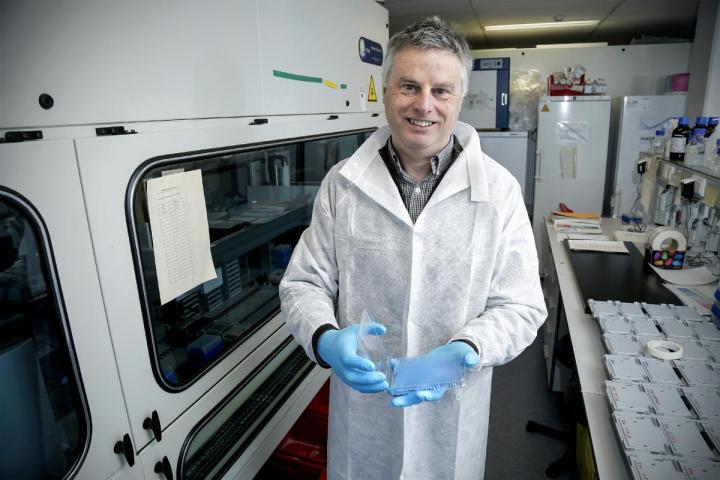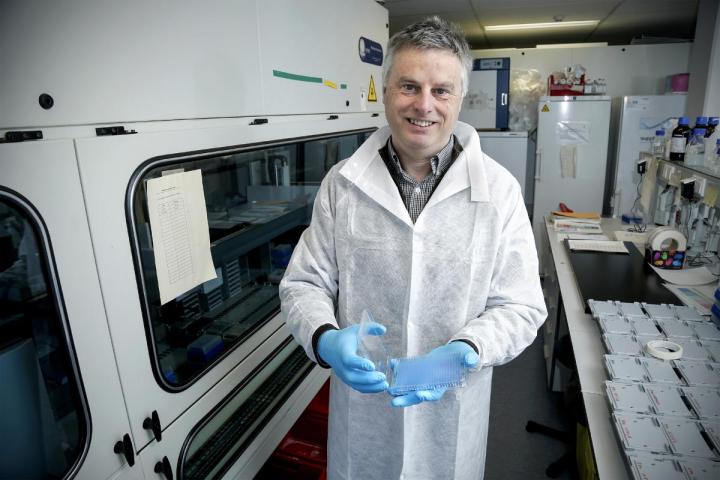
Credit: KU Leuven – Rob Stevens
Virologists from KU Leuven, Belgium, have shown that an experimental antiviral drug against hepatitis C slows down the development of Zika in mice. The research team was led by Professor Johan Neyts from the Laboratory of Virology and Chemotherapy.
"The Zika virus is transmitted by the tiger mosquito. Roughly twenty percent of the people who are infected actually get sick," explains Professor Neyts. "The most common symptoms, which last about a week, are fever, fatigue, joint and muscle pain, rash, and red eyes. A small number of infected people go on to develop Guillain-Barré Syndrome, which causes muscle weakness and temporary paralysis. In some cases, the patient needs to be put on a ventilator."
"The biggest cause for concern is that pregnant women with the infection can pass on the virus to the foetus," Neyts continues. "As a result, some babies are born with microcephaly, a disorder of the central nervous system whereby the child's skull and brain are too small. In severe cases, these children grow up with serious physical and mental disabilities."
Following explosive outbreaks of the virus on islands in the Pacific, the virus spread quickly to South and Central America and the Caribbean in 2015 and 2016. Earlier this year, the World Health Organisation declared the state of emergency to contain the epidemic as quickly as possible. After all, there is currently no vaccine or antiviral drug available to prevent or treat an infection.
"As the Zika virus is related to the hepatitis C virus, we examined whether some inhibitors of the hepatitis C virus also prevent the multiplication of the Zika virus in human cells. We have identified at least one experimental drug that is effective against the Zika virus."
Next, the researchers needed to assess whether the inhibitor also provides protection in lab animals. "We used mice with a defect in their innate immune system. When these mice are infected with the Zika virus, they develop a number of the symptoms that we also see in human patients. Treating the infected mice with the hepatitis C virus inhibitor resulted in a clear delay in virus-induced symptoms."
"The experimental hepatitis C inhibitor is not very powerful yet," Neyts concludes. "Nevertheless, our study opens up important new possibilities. We can now start testing the effectiveness of other promising virus inhibitors and vaccines against the Zika virus."
###
Media Contact
Professor Johan Neyts
[email protected]
32-163-37353
@LeuvenU
http://www.kuleuven.be/english/news?





